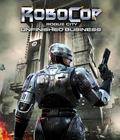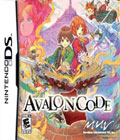Genre: Action/RPG
Publisher: Xseed
Developer: Matrix/Marvelous
Release Date: March 10, 2009
I've played a lot of RPGs in the past 20 years, but Avalon Code manages to introduce the "Code" gameplay mechanic, which I'd never seen before. Apart from that, the game borrows its combat from just about every action/role-playing game that's come before. Although the story line is definitely different fare, it's bogged down in useless exposition and lengthy bits of dialogue that keep the game from maintaining the player's interest.
Avalon Code's story revolves around your young hero (you get to select if it's a boy or girl), who is granted the big destiny of filling in the pages of the Book of Prophecy, basically because God has decided that it's time to wipe the slate clean, Old Testament style. Apparently, corruption has run a little too rampant around the globe and things are going downhill, so destruction by fire is in order, so everyone had better say their last good-byes.
You get the (bad) luck of being given one final quest. You see, not everything in the world is completely bad, and there are a lot of things that are worth saving. You're given the Book of Prophecy to record everything that needs to be remembered, and while the game presents things in an old time sense, the mechanic feels very much like downloading data from an expiring digital world. Think of this as the last day of EverQuest, but you have a tool to record all the various lands so you can export them to the next iteration.
My analogy may not be perfect, but that's basically what you're tasked with doing. You don't have to go alone, though, as you'll be accompanied by a Fire Spirit named Rempo, a somewhat-mouthy sidekick who comes along to make sure that you do what you're supposed to. It gives her an almost sinister tone in the context of the game, and I actually kind of liked this.
Once you obtain the Book of Prophecy, your adventure kicks off immediately, as you realize there are other parties out there that also have an interest in the book — or, more specifically, in killing you and taking the book for themselves. With the help of Rempo, you're introduced to the core, unique gameplay function that Avalon Code employs, which is the genetic restructuring of enemies and people you encounter.
Armed with the Book of Prophecy, you slam it on things with a button press to scan them, which then enters the information into the book and displays it on the bottom screen. Toward the upper right-hand corner, you'll see a small grid that has a few blocks of symbols in it, something that represents a Tetris-like screen. You can manipulate these blocks, called Codes, and either remove them or add them to change the property, health, and titles of enemies and people you encounter. The earliest example you're given in the game is with an encounter with a Stone Goblin. When you scan it, you'll see the Stone code, which you can remove and slot into one of four spaces in your inventory. Once you do this, the Goblin will revert into a regular Goblin, lose his Stone property, and become easier to kill.
This mechanic comes into play quite often, and not just with enemies. Everyone you encounter in Avalon Code can be scanned, and you'll often need to manipulate their codes to get a desired result or expand upon your current quest, and whether that's used to change their minds or health depends on what code is available to you. Having limited space to store codes ends up making some of these tasks a chore, as it's hard to tell when you'll need open spots in your inventory until you actually run into a problem. As a result, you'll have to run back and forth or get rid of something that you were storing to create a new weapon or item later on. Why the developers decided to put a limitation on the amount of codes you can store is beyond me; I really don't think it would have broken the game in any way, and it just adds some arbitrary difficulty to the whole thing.
The other issue I have is with the controls, which can be pretty frustrating when you're trying to swap out codes in the middle of a fight. Most of the game is controlled with the d-pad and face buttons, so movement, combat, and using defense rolls are all performed without the use of the touch-screen. However, the only way to manipulate the codes is through the touch-screen, along with saves, hints from Rempo, and your journal of various things you've already scanned. I'd rather be able to bring most of this up in a simple menu and work my way through with the d-pad, especially with the code-swapping because it can be difficult to take your fingers off the action and tap the tiny buttons on the touch-screen to bring up the code section of the menu. You have to use the stylus to hit your mark, or you'd need to have some really tiny thumbs to be able to do it without a stylus. I'd find myself getting hit at least once by an enemy before I managed to bring up the menu, which thankfully pauses the action.
Beyond that, I can't complain about Avalon Code too much. The combat is really basic, and you're stringing together hits with the X and Y buttons, since you're only able to hold two swords. Eventually, you gain a couple of skills to add, like a charge-up spin attack reminiscent of Zelda. You can also have some limited magic attacks, like using Rempo's fire ability, which drains your MP after every use. You level up pretty frequently, with the occasional boost to attack or go to other areas, and everything else about the game is pretty much standard action/RPG territory, which is disappointing, if only because the code system is so new and interesting when compared to the rest of the game.
The visuals and audio are worth noting, at least for a 3-D game on the DS. Avalon Code reminds me of something that Square would have published a little later in the PS1's shelf life, and while it's not quite up there with, say, Final Fantasy IX, it's pretty close. The only thing that really holds it back is the lack of interesting features on the map and background areas, but otherwise, I thought the 3-D character designs were really solid. The soundtrack is also great, and it's possibly the best thing about the game after the code system. Lots of great tunes stood out, so those who are into video game soundtracks might want to snag this one.
Although it's a solid new IP on the DS, the control issue keeps Avalon Code from being something great. It's still decent and definitely worth checking out for RPG fans, but anyone who's not a big fan of the genre is going to get frustrated with the controls and code system. If you have an interest in action RPGs, Avalon Code might be worth your time, but everyone else should rent it and see how the controls work out for them.
Score: 7.0/10
More articles about Avalon Code











 Avalon Code is an action RPG boasting incredible graphics, innovative gameplay mechanics, and an epic story of the worlds destruction and the players task to create a new one. Choose to play as a male or female, affecting which characters to develop a romantic relationship with.
Avalon Code is an action RPG boasting incredible graphics, innovative gameplay mechanics, and an epic story of the worlds destruction and the players task to create a new one. Choose to play as a male or female, affecting which characters to develop a romantic relationship with.




































